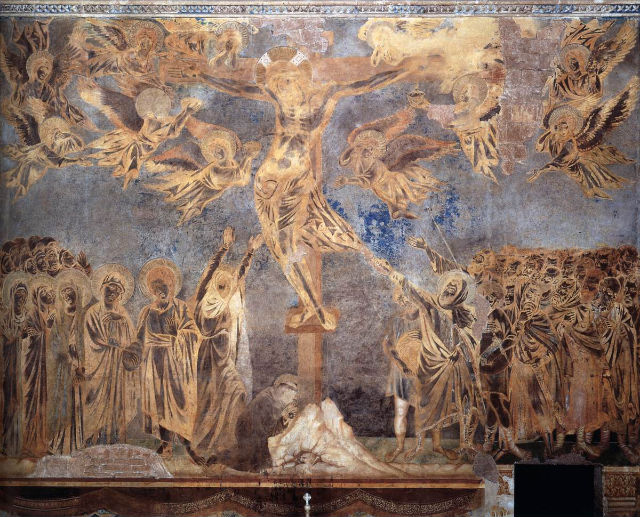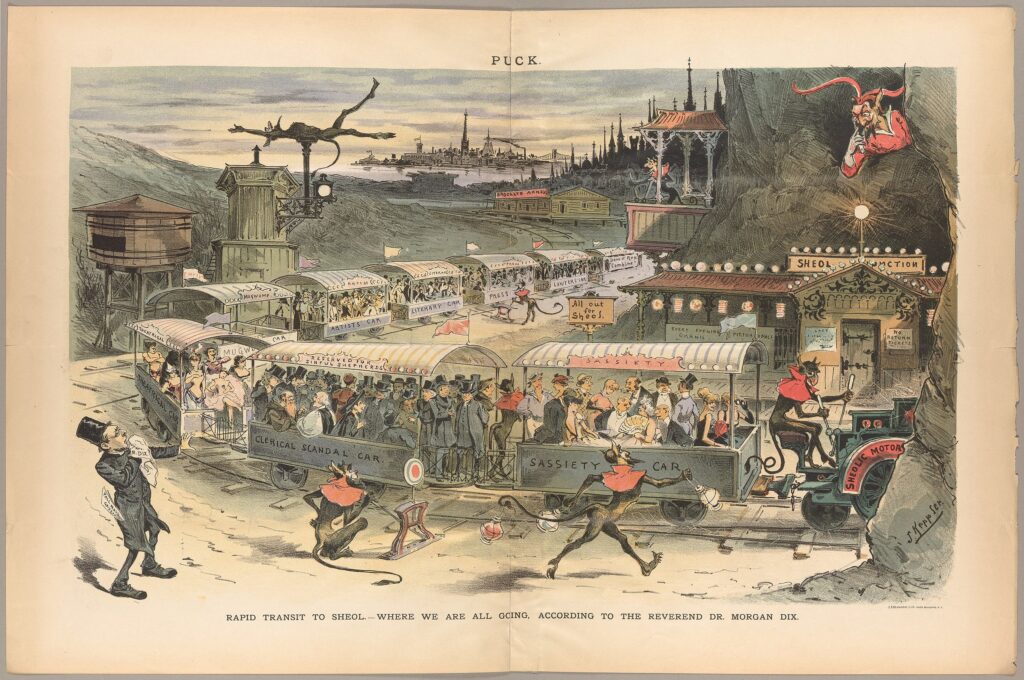Growing up in the church, I was taught that Jesus went to preach to the spirits in spirit prison — some spirit world where the evil or even the unknowing hang out. But I think the spirit world is where everyone goes after death. Hell, which is taken from the word Hades (Greek) or Sheol (Hebrew), may actually have signified the world of spirits, not the hell that we think of today or in literature such as Dante’s Inferno. In fact, looking at how these words evolved, it is often unclear.
For example, the Hebrew word, Sheol, seems to be a “synonym of “bor” (pit), “Abaddon” and “shaḥat” (pit or destruction), and perhaps also of “tehom” (abyss).” And it is possible that the interpretation came from the exilic times when Israel had been taken captive by the Assyrians and Babylonians. The meaning of Sheol may then have taken up some of the ideas of those empires. I think I will have to delve into this in a later post.
I’ve heard people explain their opinions about some gulf between the good spirits and the evil spirits. But I kind of look at it like this world. When you go to Walmart, or you go to a sporting event, you are there with all these people — good and bad alike. Usually, you choose who to be with at that event. Sometimes I go somewhere, and I feel uncomfortable, and I look around and say, “these aren’t my people.”
The words, hell, and paradise are common terms, different from what Christ was referring to when He turned to the thief on the cross and said, “thou shalt be with me in Paradise” — what he was saying was, “you will be with me in the world of spirits” –where the disembodied go after death. (Luke 23: 43) (The Words of Joseph Smith, (TWJS), Edited by Ehat and Cook, pg 210 – 214). Once again, the word “paradise” had a different meaning than what we might describe it as today. And I’ve heard people say that Christ didn’t go to hell to preach the gospel but organized others to do this — again, this may not be the whole picture.
In the world of spirits, the righteous were anxiously awaiting for the Savior to arrive. They couldn’t wait to be released from the bonds of death, to have their body restored, bones, flesh, and spirit to be reunited. They would be resurrected now that Christ had fulfilled his mission.
“For the dead had looked upon the long absence of their spirits from their bodies as a bondage.” (D&C 138: 50) — a spirit prison.
With the resurrection of Christ, those in bondage were happy. Those on earth who saw their Savior crucified were sad. I guess that’s why we need to rely on God’s perspective because so many times, things that appear difficult and a setback are actually a blessing. I see this with the coronavirus pandemic.
I will have to research the myths and beliefs of what it means to go to hell. Though, I found this illustration a Disneyland-like ride:
References:
Doctrine & Covenants 138
Doctrine & Covenants 137
John 5: 25
1Peter 3: 17- 20 (KJV)
1 Peter 4: 5-6 (KJV)
The Words of Joseph Smith, (TWJS), Edited by Ehat and Cook, pg 210 – 214



